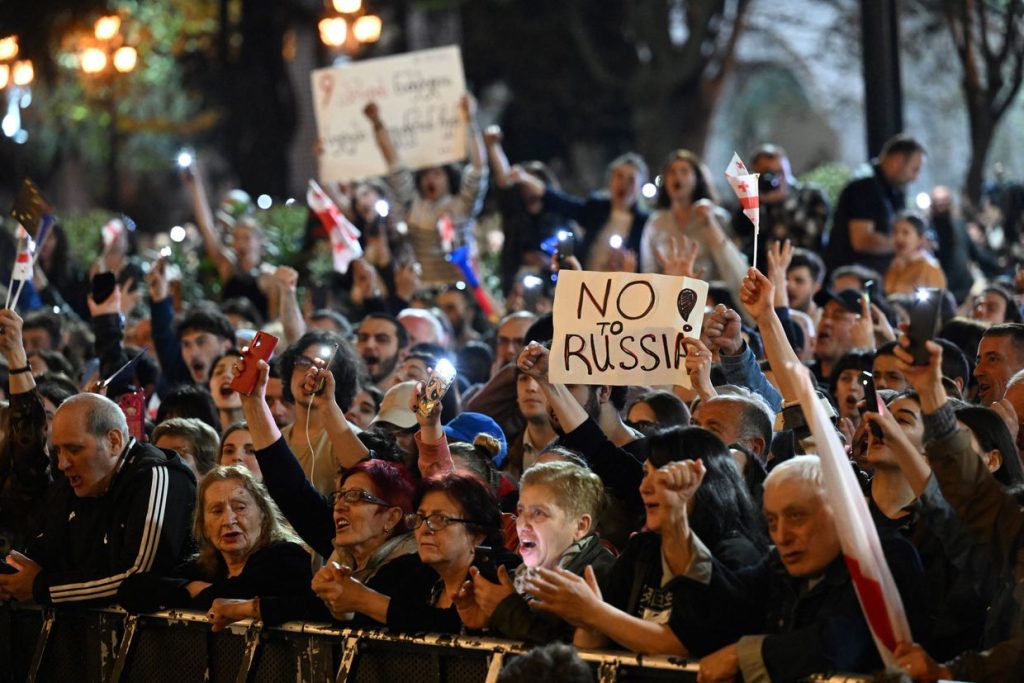The Georgian parliament postponed the vote on the controversial foreign agents bill to April 17 amid mass protests. The bill, first introduced in 2023 by the ruling Georgian Dream party, would require organizations receiving foreign funding to be labeled as such. It was abandoned in March 2023 due to widespread demonstrations. The bill, known as the “Russian law” in Georgia for its resemblance to legislation in Russia, was recently reintroduced in parliament as a bill on the “transparency of foreign influence.” This decision sparked mass protests in Tbilisi, with protestors chanting “No to Russian law” outside the parliament building.
The debate over the bill within the parliamentary session remained tense, with reports of physical altercations between members. Mamuka Mdinaradze, the leader of Georgian Dream’s parliament faction and a key force behind the bill, was punched in the face by an opposition MP during an early discussion of the revived bill. Georgian police reportedly used tear gas to disperse the demonstrators outside parliament, leading to injuries and arrests. The EU’s ambassador to Georgia stated that the foreign agents bill is “incompatible” with European values. This could potentially harm Georgia’s chances of entering the EU if the bill is passed, as the European Commission had offered the country candidate status in November 2023.
The bill, previously withdrawn in 2023 following protests, is seen as a threat to freedom of speech and democracy in Georgia. Modeled after similar legislation in Russia, the bill aims to target organizations and individuals critical of the government, including independent journalists, activists, and NGOs. The protests against the bill reflect a strong rejection of any attempt to limit free speech and civil society in the country. The renaming of the bill as a measure for the “transparency of foreign influence” has not appeased protestors, who continue to voice their opposition to what they see as a dangerous restriction on their rights.
The actions taken by the ruling Georgian Dream party in reintroducing the foreign agents bill have not been well-received, both domestically and internationally. The bill has faced criticism from the opposition, civil society groups, and the European Union. The use of force against protestors and the tense atmosphere within the parliamentary session further highlight the contentious nature of the proposed legislation. The Georgia-EU relationship, which has seen positive developments with the offering of candidate status, may face setbacks if the bill is passed, as European values and principles are being called into question.
As the debate over the foreign agents bill continues in Georgia, it is evident that the government’s efforts to push through the legislation are met with strong resistance from various sectors of society. The protests and demonstrations serve as a reminder of the importance of upholding democratic values and protecting freedom of expression. The outcome of this legislative battle will not only impact the future of civil society in Georgia but also its relations with the European Union and the international community at large. It remains to be seen how the situation will unfold and whether the voices of those opposing the bill will be heard and their concerns addressed.















